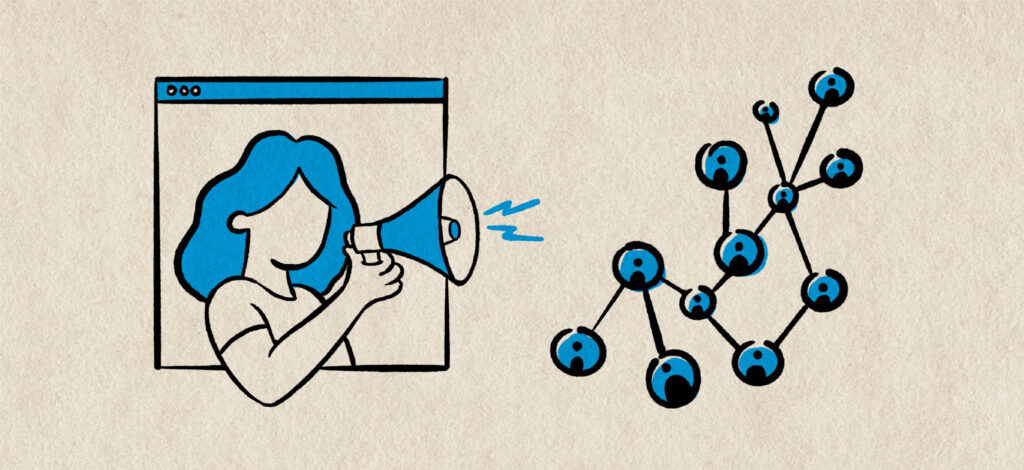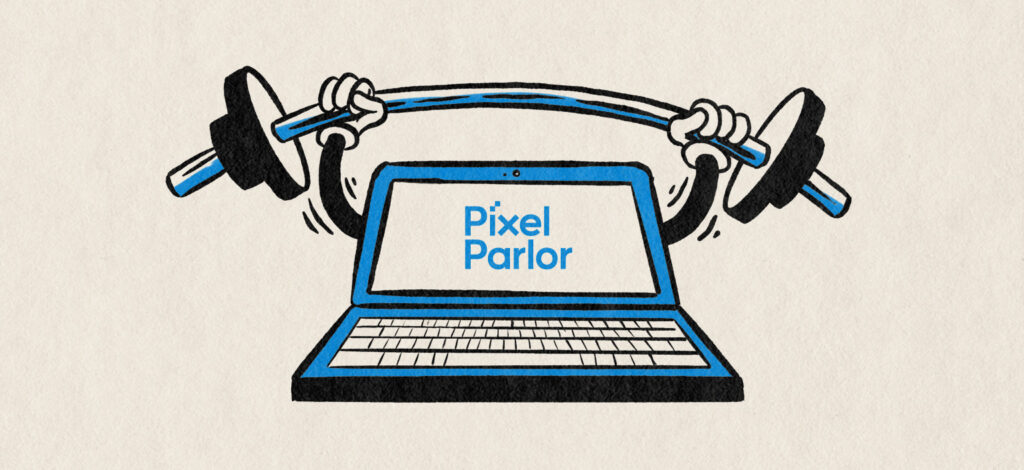Avoid time-consuming, money-wasting mistakes and develop a thoughtful plan that leads to a beautiful and effective website.
Every business and organization needs a website. Your website is a powerful marketing tool. Maybe your most important marketing tool.
And if marketing has a negative connotation because you aren’t an e-commerce brand, let’s recast marketing tool as connection opportunity.
Because that is exactly what you want your website to do:
Make a great first impression that deepens your connection with your audience and leads to action.
To do this, use your website to communicate you have empathy—you understand your audience’s needs and wants—and credibility—you can deliver on your promise to solve their problem.
If websites are such a powerful tool, how do you know what to do to set yourself up for success?
Learn from our free (and beautiful) resource with advice and suggestions you can act on right away.
Your Website Needs to Demonstrate Empathy and Credibility
When you successfully demonstrate empathy and credibility, you create a lasting impression that you are a trusted guide to create the change in your audience’s personal or professional life that they desire.
And here’s the thing: you don’t have a lot of time to make a great first impression. There is a statistic backed by research that has found a firm place in the blogosphere about how quickly website visitors form an opinion about a website based on visual appearance:
You have 50 milliseconds to make a good first impression with your website’s visual design.
Is there a chance this website statistic gets overshared? Does it benefit website designers? Does it miss the fact that in some cases by the time a visitor arrives on your website you have already established enough goodwill from an in-person experience or compelling social media impression that they will devote more time to digging into your content?
Sure.
But we shouldn’t underestimate the power of snap judgments.
Even if your website visitor devotes more than .05 seconds to judge your credibility based on your website’s design, one thing is for certain:
You have to make a great first impression quickly.
This is why coming up with a thoughtful and strategic website plan is critical.
We are here to help.
We’ve collaborated with many businesses and organizations to complete successful website projects. We know the difficulties. We understand the stresses. And we know what it takes to make and act on a plan that leads to success.
We are sharing a comprehensive and helpful guide with checklists, key questions, and insight so you have everything, well almost everything, you need to develop a winning website plan. A solid plan saves you time, money, and unnecessary frustration so that you get a beautiful and effective website and spend more time doing what you do best: delivering on your promises.
What’s an effective website? A website that makes it abundantly clear to website visitors that you understand their wants and needs (empathy) and that you are capable and experienced to solve—or help them solve—their problems (credibility).
Websites are more than a visual display of information.
Sure, you want your website visitor to get the information they need with as little friction as possible, but if a website is a powerful tool, you have to take a step back and make strategic decisions about how you want to use that tool.
A website shouldn’t just be the digital equivalent of everything you do and everything you say about yourself. A website should be designed around a specific action you want your specific audience to do.
We are all residents of the main streets, back alleys, and open fields of the internet. You’ve visited plenty of websites. You navigate them with varying levels of attention or inattention. It’s just part of our everyday activities of scanning for various services, products, and information.
But too often, there is an idea that often goes unsaid that a website is basically just a designed version of content. A more compelling way to communicate what you offer or who you are.
Websites Need to DO Something.
Try to do everything for everyone and you end up doing nothing for no one.
So you need a plan.
Think about it.
You wouldn’t start a kitchen renovation without a blueprint.
You wouldn’t get in a cab without a destination.
And you wouldn’t sit down to get a tattoo without a design.
So, why would designing a website be any different?
To develop a successful plan for a website project, you need to step back and take a good hard look at your goals, your audience, and the process.
This free resource “Before You Begin: Preparing for Successful Web Projects” goes into this in detail. Click here to download.
Fail to Plan and Plan to Fail
We all know the adage. This is true for website projects. If you don’t come up with a solid plan at the beginning of a project, you end up doing that work later anyways and this can result in project delays, extra costs, and a fair amount of frustration.
You can engage a design studio to lead you through the planning stage, often called Discovery, if you have the budget to do this. It’s helpful to have a team of experts lead you through the process so you participate under the helpful guidance of a project manager and a team of design and content strategists.
But for many small businesses and nonprofit organizations, the cost of a website can already feel like a financial stress, even if a well-designed website offers a promising return on investment.
If you need to do the planning yourself ahead of time and then engage with a design studio that’s fine with us. But we recommend that everyone thinking about starting a website project know the road ahead. That’s why we created this guide.
At the end of the day, we want more businesses and organizations to have websites that get results and represent the unique role they play in their customers’ and communities’ lives.
A Successful Plan Helps You Succeed
And a successful website inspires action and sparks change.
Not only will a thoughtful plan help you save time and money, but it will make the experience more enjoyable for you as well.
We love designing websites and building brands for businesses and organizations. It can be a really fun and rewarding experience. It just requires taking the time at the beginning of the project to know who you are communicating to, what you want them to do, and what capacity you and your team have to invest in a powerful tool that can deliver a game-changing return on investment.
Need help designing your website?
Let’s talk. We’ve helped many people in your shoes.





